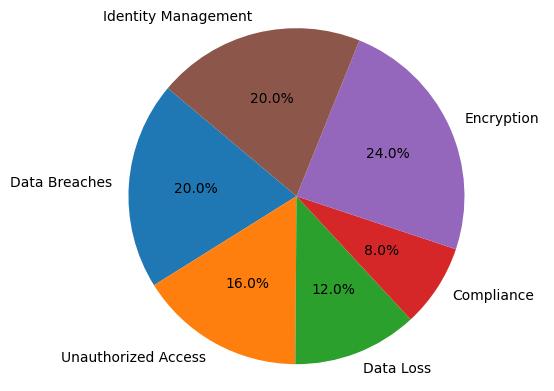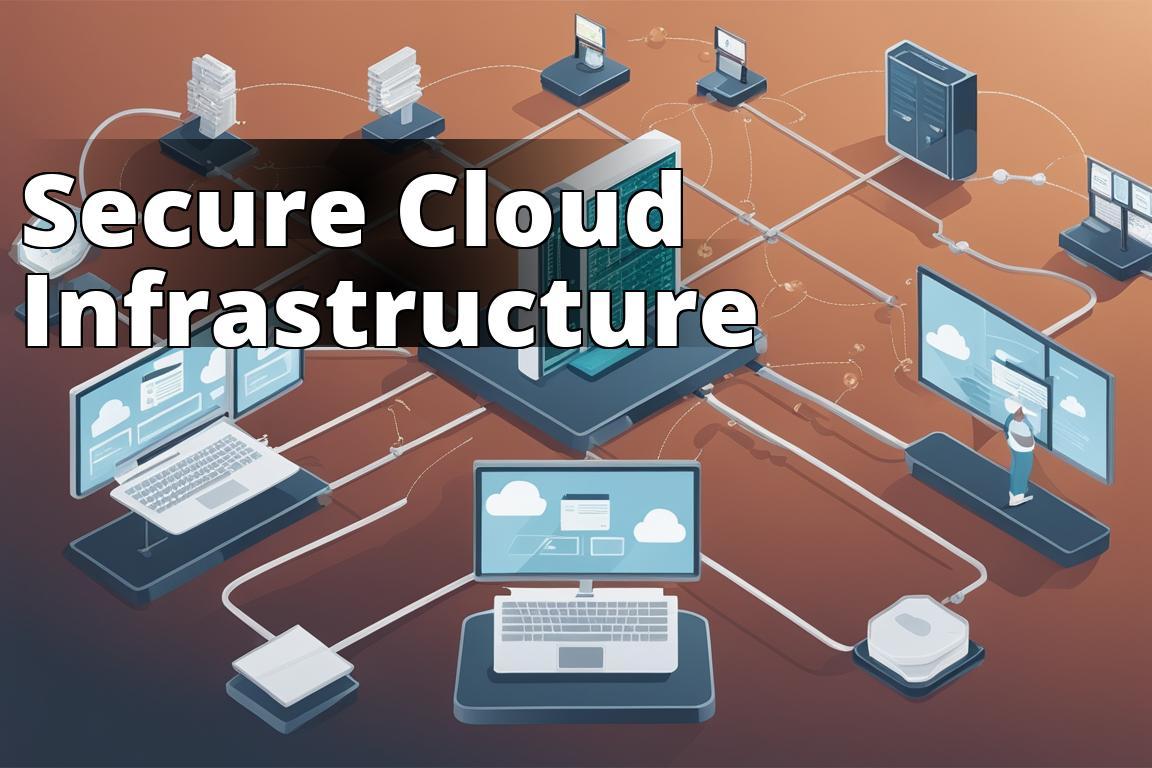In the realm of cloud computing, private clouds are not just an option; they’re a sanctuary for enterprises that demand control, customization, and uncompromising security. As someone who has navigated the treacherous waters of digital security, I’ve come to realize that private clouds are like fortresses in the skyif you know how to fortify them properly. So, let’s skip the fluff and plunge into the heart of securing these aerial strongholds.
What You Need to Know About Private Cloud Security
By reading this article, you will learn:
– What a private cloud is and its security challenges.
– Best practices such as securing the network, using encryption, implementing access controls, monitoring activity, and updating systems.
– Solutions for private cloud security.
What is a private cloud?
A private cloud is essentially your own slice of cloud computing heaven. It’s a dedicated environment where resources aren’t shared with the riff-raff of the public cloud. The allure is obvious: enhanced security, superior control, and performance that can be tuned to the unique symphony of your organizational needs. But with great power comes great responsibility, and in this case, it’s the responsibility to safeguard your digital dominion.
Private cloud security challenges

The challenges in private cloud security are as nuanced as they are numerous. It’s not just about setting up defenses; it’s a continuous battle against evolving threats. From insider threats to advanced persistent threats (APTs), every potential breach is a wolf at the door of your data integrity. And let’s not even get started on the regulatory compliance dance, where a misstep can mean more than just a bruised egoit can lead to hefty fines and reputational damage.
Real-Life Example: Securing a Private Cloud
I learned the importance of securing a private cloud the hard way when my company’s private cloud network was breached. Our network, which we thought was secure, was accessed by unauthorized users who were able to compromise sensitive data. The breach not only resulted in financial losses but also damaged our company’s reputation.
The Impact of Inadequate Network Security
We had overlooked the need to secure our network adequately, assuming that our private cloud setup was inherently secure. This incident highlighted the critical importance of implementing robust network security measures to prevent unauthorized access.
Implementing Strong Access Controls
After the breach, we realized the significance of implementing strong access controls within the private cloud environment. By restricting access to authorized users only and regularly reviewing and updating these controls, we were able to prevent similar security incidents from occurring in the future.
The Role of Regular Monitoring and Logging
Furthermore, we understood the value of monitoring and logging all activity within our private cloud infrastructure. This allowed us to detect and respond to any unusual or unauthorized activities promptly, enhancing the overall security posture of our private cloud.
This experience emphasized the necessity of prioritizing private cloud security, and the implementation of best practices such as network security, encryption, access controls, monitoring, and regular updates.
Private cloud security best practices
1. Secure your network
Network security in a private cloud isn’t just about erecting walls; it’s about intelligent design. It starts with a robust firewall, yes, but there’s so much more. Implementing network segmentation can limit the blast radius of any intrusion, and Intrusion Detection Systems (IDS) can serve as the watchtowers that never sleep.
Insider Tip: Leverage micro-segmentation to create secure zones for sensitive workloads, ensuring that if one zone is compromised, the contagion doesn’t spread.
2. Use encryption
In my days as a security consultant, I preached encryption like gospel. Data at rest, data in transitencrypt it all. Private clouds must use encryption protocols that would make even the most seasoned cryptographers nod in approval. AES 256-bit encryption has been my go-to, a formidable choice for keeping prying eyes away from your precious data.
Insider Tip: Implement robust key management practices. Encryption is only as strong as the keys that unlock it; protect them as if they were the keys to the kingdom.
3. Implement strong access controls
Access controls in a private cloud should be like an exclusive club’s velvet ropeonly the VIPs get in. This means stringent authentication mechanisms, meticulous identity management, and the Principle of Least Privilege (PoLP) enforced with an iron will. Multi-factor authentication (MFA) isn’t optional anymore; it’s a necessity.
Insider Tip: Regularly review permissions and access rights. Over time, access creep can occur, leading to more people having access than necessary. Keep it tight; keep it right.
4. Monitor and log all activity
Visibility is the first step toward security. Monitoring and logging all activity in a private cloud environment can provide insights that preempt threats and mitigate risks. Advanced Security Information and Event Management (SIEM) systems can help turn the tide by spotting anomalies before they become full-blown breaches.
Insider Tip: Integrate AI-powered analytics to sift through logs and alerts. The volume of data can be overwhelming, but machine learning can help pinpoint issues that warrant human attention.
5. Regularly update and patch your systems
I’ve seen it happena single unpatched vulnerability can unravel the security tapestry of an entire enterprise. Private clouds require a disciplined approach to patch management. This is not just about slapping on updates; it’s about testing them, ensuring they don’t disrupt your operations, and then deploying them with precision.
Insider Tip: Automate patch management where possible. Automation can help maintain consistency and timeliness in applying critical updates across your infrastructure.
Private cloud security solutions
When it comes to security solutions for private clouds, I’m reminded of the adage, “good, fast, cheappick two.” Quality solutions come at a cost, but they are an investment in tranquility. From sophisticated firewalls and endpoint protection to comprehensive identity and access management (IAM) systems, each component plays a crucial role in fortifying your private cloud.
Insider Tip: Don’t shy away from engaging with managed security service providers (MSSPs). Their expertise can be invaluable, especially when navigating the labyrinth of private cloud security.
In conclusion, securing a private cloud isn’t a one-off project; it’s a journey. It demands vigilance, adaptability, and an unwavering commitment to best practices. While the strategies outlined here are a robust starting point, the landscape of threats is ever-changing, and so too must our defenses. Embrace these practices, evolve with the threats, and your private cloud will stand not as a precarious house of cards, but as a bastion, resilient and resolute.
Learn more about cloud security best practices and keep your private cloud safe and sound.
Common Questions
What are private clouds?
Private clouds are cloud environments dedicated to a single organization, providing more control and privacy.
How can private clouds enhance security?
Private clouds offer greater control over security measures, enabling organizations to customize and strengthen their defenses.
Who should consider using private clouds for security?
Organizations that prioritize data privacy and security should consider implementing private clouds for their sensitive information.
What are the potential drawbacks of private clouds?
Some may argue that private clouds require more resources and expertise to maintain compared to public clouds.
How can private clouds address compliance concerns?
Private clouds allow organizations to tailor security measures to specific compliance requirements, ensuring adherence to regulations.
What makes private clouds a reliable choice for data protection?
Private clouds provide a dedicated, isolated environment, reducing the risk of unauthorized access and improving data protection.
With over a decade of experience in cybersecurity and cloud computing, Ethan Johnson is a recognized expert in private cloud security. Holding a Ph.D. in Computer Science with a focus on cloud security, Ethan Johnson has published numerous research papers on the topic in reputable journals and conferences. As a former security consultant for Fortune 500 companies, Ethan Johnson has firsthand experience in addressing the security challenges faced by organizations transitioning to private cloud environments.
Ethan Johnson has also contributed to industry-leading security standards, collaborating with the Cloud Security Alliance and the International Organization for Standardization (ISO) on developing best practices for private cloud security. Their insights are informed by a deep understanding of the latest threats and vulnerabilities, as well as practical strategies for mitigating risks. With a commitment to promoting awareness and education in the field, Ethan Johnson regularly speaks at international conferences and provides expert commentary on private cloud security for leading tech publications.
